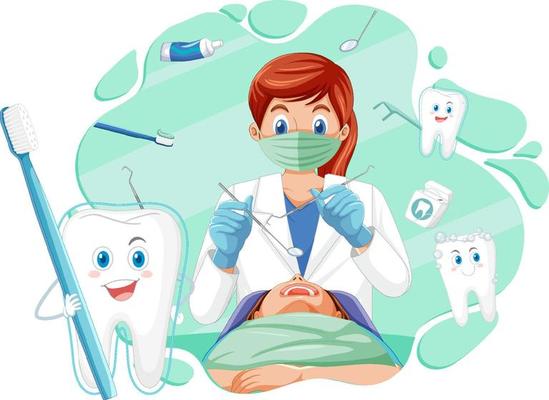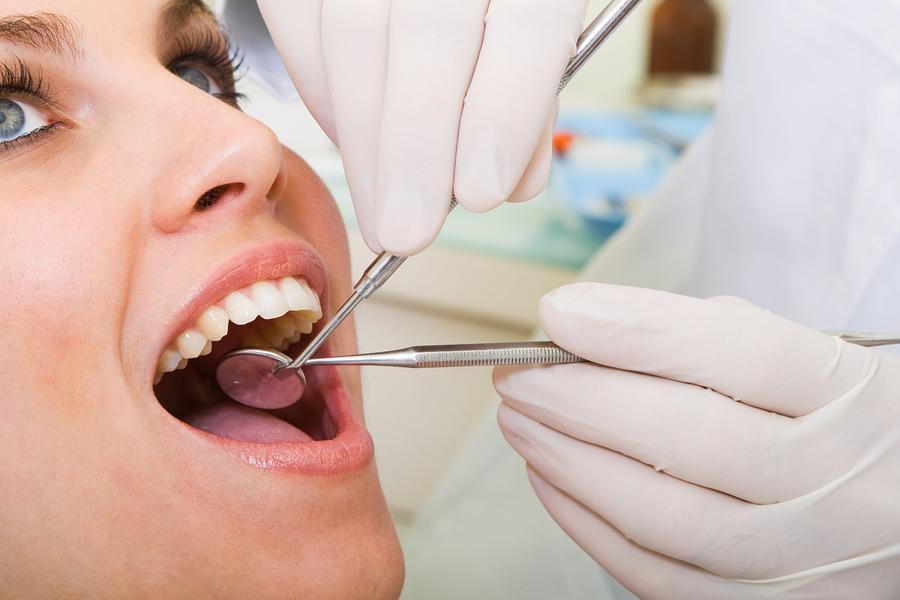Recognizing How Dental Experts Attend To Common Oral Health Issues
Dental professionals employ a diverse technique to manage typical oral wellness problems, using analysis strategies such as aesthetic evaluations and X-rays to discover dental caries, gum disease, and tooth sensitivity. Emphasizing precautionary care, dental practitioners also provide personalized advice on preserving oral health. How precisely do these methods merge to ensure ideal dental wellness?
Identifying Cavities
Diagnosing tooth cavities involves a meticulous examination of the teeth, using both aesthetic evaluations and advanced analysis tools. Oral specialists begin with a comprehensive visual evaluation, searching for discoloration, visible openings, or other indications of degeneration on tooth surfaces. They might make use of an oral mirror and explorer to detect soft areas or areas that might indicate demineralization.
In enhancement to visual examinations, dental experts usually employ sophisticated analysis devices to enhance accuracy. Digital radiographs, or X-rays, are fundamental in determining tooth cavities that are not visible to the naked eye, such as those between teeth or below existing oral job. These images give thorough insights right into the level and location of decay, enabling specific therapy planning.
Some practitioners also make use of laser fluorescence tools, which identify adjustments in tooth make-up by gauging just how much light is shown back from the tooth surface. This method can recognize early-stage tooth cavities that could not yet be visible or detectable through traditional means. Normal oral examinations and using these diagnostic strategies are important in capturing tooth cavities early, consequently preventing additional decay and preserving general dental health.
Treating Periodontal Illness
While discovering cavities is an important element of dental health and wellness, it is similarly important to address periodontal disease, one more prevalent dental problem. Gum tissue illness, or periodontal illness, is largely triggered by the buildup of plaque, a sticky movie of bacteria on the gums and teeth. If neglected, it can advance from gingivitis, a light kind, to periodontitis, a much more serious condition that can cause missing teeth and systemic wellness issues.
The initial treatment for gum tissue illness frequently involves non-surgical approaches. Scaling and root planing, a deep cleaning treatment, is frequently utilized to remove plaque and tartar from beneath the gumline. Anti-bacterial drugs may additionally be suggested to decrease microbial load.
For innovative cases, medical treatments could be essential. Treatments such as flap surgical treatment, where gum tissues are lifted back to eliminate tartar deposits, or bone and cells grafts, which intend to regrow damaged areas, are utilized to bring back oral health and wellness.
Ongoing upkeep is essential in handling gum disease. Dental professionals recommend regular oral examinations, specialist cleansings, and thorough home treatment methods, including brushing, flossing, and utilizing disinfectant mouthwash. Early detection and consistent administration are key to avoid the development of this typical yet severe oral condition.
Managing Foul-smelling Breath
Foul-smelling breath, also understood as halitosis, regularly influences people and can be a source of significant social discomfort and anxiousness. Dental professionals play a crucial function in handling this problem and identifying by recognizing underlying reasons and suggesting appropriate therapies.
The etiology of halitosis is multifactorial, with bad dental hygiene being a primary factor. Microbial plaque buildup on the teeth and tongue, food bits, and dry mouth are common wrongdoers. eugene dentist. Dental practitioners commonly start administration by encouraging people on effective dental health practices, consisting of regular brushing, flossing, and the usage of disinfectant mouth washes

Additionally, way of life and dietary elements, such as cigarette usage and usage of certain foods, may exacerbate foul-smelling breath. Dental experts offer personalized guidance on nutritional adjustments and cessation of hazardous behaviors. Partnership with other doctor might likewise be required if systemic conditions, such as respiratory system infections or stomach disorders, are presumed factors to halitosis.
Addressing Tooth Level Of Sensitivity
Dealing with oral wellness expands beyond taking care of bad breath to include problems like tooth sensitivity, which can significantly impact every day life. Tooth sensitivity, identified by pain or pain in response to view stimulations such as hot, cold, wonderful, or acidic foods and drinks, usually arises from subjected dentin or declining gums. Dentists utilize a multifaceted strategy to handle and minimize this problem.
First, a complete exam is necessary to recognize the underlying reason, which might range from enamel disintegration to gingival recession. Based on the medical diagnosis, treatment can involve desensitizing agents like fluoride gels or varnishes, which enhance tooth enamel and lower level of sensitivity. In addition, dental practitioners may recommend specially formulated tooth paste for sensitive teeth, having substances like potassium nitrate or stannous fluoride to block discomfort signals.

Preventive Dental Care
Acknowledging the relevance of precautionary dental treatment is critical for keeping long-term oral health and wellness. Precautionary care includes a variety of techniques focused on protecting against the start of oral diseases and problems. Regular oral examinations, generally suggested every 6 months, are basic to this method. During these gos to, dental experts do comprehensive cleanings, eliminating plaque and tartar visit the site that are beyond the reach of regular brushing and flossing.
Furthermore, preventative treatment consists of the application of fluoride therapies and dental sealers, which provide an extra layer of defense against tooth degeneration. Fluoride reinforces the enamel, making it much more immune to acid strikes, while sealants act as an obstacle on the chewing surfaces of the back teeth, where degeneration usually begins.
Education is a considerable element of preventative oral care. Dentists and hygienists enlighten people on appropriate cleaning and flossing methods, the importance of a balanced diet, and the effect of way of life options such as smoking cigarettes and sugar intake on dental wellness.
Final Thought

Dental experts use a multifaceted strategy to handle common dental health issues, utilizing diagnostic strategies such as visual evaluations and X-rays to spot dental caries, periodontal condition, and tooth sensitivity.While finding cavities is a critical facet of dental health and wellness, it is just as essential to deal with periodontal illness, another widespread dental issue. dentists eugene. Dental experts might carry out a thorough oral evaluation to recognize potential issues such as periodontal disease, oral cavities, or dental infections. By addressing tooth sensitivity adequately, dentists assist clients attain greater comfort and maintain ideal dental health and wellness
Emphasizing precautionary care and individualized guidance, oral specialists play a crucial function in maintaining optimum dental health and wellness and minimizing lifestyle-related dental issues.